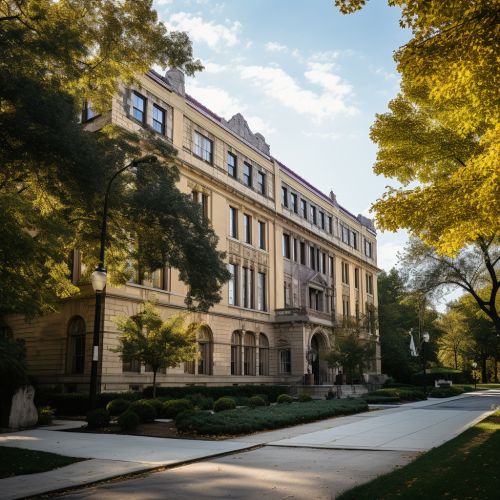Robert Koch Institute
Overview
The Robert Koch Institute (RKI) is a German federal government agency and research institute responsible for disease control and prevention. It is located in Berlin and is named after Robert Koch, a pioneering German microbiologist. The institute is one of the most important bodies for the safeguarding of public health in Germany.


History
The Robert Koch Institute was founded in 1891, originally as the Royal Prussian Institute for Infectious Diseases. Robert Koch, who was a Nobel laureate in Medicine for his research on tuberculosis, was appointed as its first director. The institute was renamed in his honor in 1942.
Structure and Organization
The RKI is a federal institution within the portfolio of the Federal Ministry of Health. It employs more than 1,000 people, including scientists, physicians, IT specialists, and administrative staff. The institute is organized into several departments, each focusing on specific areas of public health.
Role and Responsibilities
The primary task of the RKI is the protection of the population from disease and the improvement of people’s health. The institute is responsible for identifying, preventing and combating infectious diseases, as well as analyzing and evaluating trends in public health. It also provides scientific advice to the Federal Ministry of Health and other federal institutions.
Research
The RKI conducts research in a broad range of fields related to disease control and prevention. This includes research on infectious diseases, non-communicable diseases, health monitoring, and epidemiology. The institute also maintains several national reference centers and consultant laboratories for various pathogens.
Surveillance
One of the key tasks of the RKI is the surveillance of infectious diseases. The institute collects, analyzes, and interprets data on the occurrence of infectious diseases in Germany. This information is used to detect outbreaks, monitor trends, and guide public health interventions.
Education and Training
The RKI offers a range of education and training programs for health professionals. These include postgraduate training in applied epidemiology, laboratory management, and public health microbiology.
International Cooperation
The RKI collaborates with numerous international organizations, such as the World Health Organization and the European Centre for Disease Prevention and Control. It participates in international research projects and contributes to global health initiatives.
